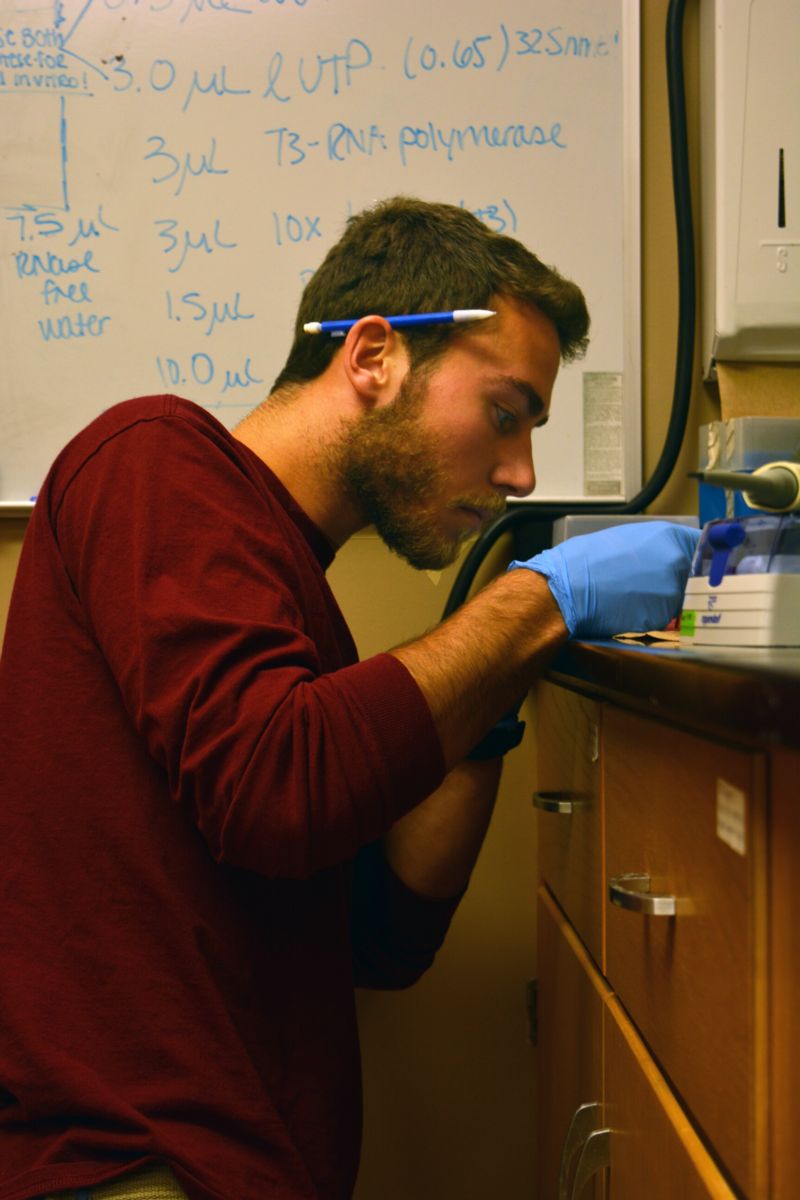Posted on Friday, October 20, 2017
 As students progress through their selected programs, it’s hard for them to imagine ever getting out of the classroom and into real-world applications. However, through internships, Westminster students are not only able to get a taste of what they may want to do in the future but also make an impact in their respective fields.
As students progress through their selected programs, it’s hard for them to imagine ever getting out of the classroom and into real-world applications. However, through internships, Westminster students are not only able to get a taste of what they may want to do in the future but also make an impact in their respective fields.
Senior biology major Austin Arrigo spent his summer with the Hillman Research Institute in Pittsburgh conducting significant research on platelet interaction with cancer cells. As one of the recipients of Westminster’s Spencer Davis Scholarship for students with unpaid internships, Arrigo volunteered at the institute and made new findings in his research.
“So what we were looking at was platelet interaction with cancer cells because what happens is the platelets form a shield around the cancer cells and allows them to move through the bloodstream easier,” Arrigo said.
Therefore, Arrigo was assigned to look how the metastasis—the movement of a tumor from its original location to another part of the body—of cancer takes place in the body.
“We know that they [cancer cells] interact with platelets, so if we can stop their interaction with platelets, then we can stop them from metastasizing.”
He looked at specific proteins involved in the platelet cell cycle and how they activate cancer cells. By understanding the presence of these specific proteins, Arrigo manipulated protein expression in cells and fabricated platelets. From there, his research was to make cancer cells act like platelets in order to better understand metastasis.
A week before he left, Arrigo found a cancer cell that activated like a platelet would in his experimentations. Unfortunately, he ran out of time in his internship before he could finish the procedure. Nonetheless, Arrigo used his experience this summer to find a new interaction of cancer cells through the mechanism that he performed.
“People already knew that the cells acted like platelets if you treated them like platelets,” he said. “So the use of cells as platelets was not necessarily new, but the specific interaction through the mechanism I used is new.”
Arrigo attributed his abilities in the laboratory this summer to the experience he received in his classes at Westminster. All summer, he did specific functions such as Western Blots and micropipetting that he wouldn’t have been experienced in had it not been for his lab time in class.
Through his internship, Arrigo was reassured that his interests in class align with the field of work he is looking to pursue upon graduation.
“I already knew I like research, but to do something like that it really put my feet to the fire and helped me realize that this is something I truly love,” he said.
The experience that students gain in their respective fields gives them a way to think more seriously about their futures and test their knowledge against what they are learning in class. Arrigo’s research not only fed his passion for research but also gave the cancer-research industry a leverage as they continue his research with platelets, proteins and metastasis.
Written by Megan Simpson